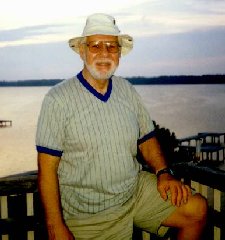Was there, did that, not now
Tri-O's
Oddities, observations, and opinions
By Herb Kandel
His father was a Mennonite and his mother a Jehovah’s Witness. From these peaceful religions there emerged the commanding general of the Allied forces in Europe during World War II and the 34th President of the U.S..
He was born in Texas October 14, 1890, the third of seven sons. When he applied to the Naval Academy he was refused as he exceeded the age for admission. Instead he went to the Military Academy at West Point graduating in 1915 in the top half of his class. As a second lieutenant, he met Mamie Doud, whom he married in 1916.
He eventually served under General John J. Pershing, then to the Army War College, and next as executive officer to the Assistant Secretary of War. Later he was chief military aide to General Douglas MacArthur, Army Chief of Staff. During these assignments he gained the experience in the handling diplomatically, and sometimes forcefully, the giant egos of those times, I.e., Winston Churchill, George S. Patton, General Charles de Gaulle and Field Marshall Bernard Montgomery.
Although Dwight D. Eisenhower never held an active command his administrative and leadership abilities were his major assets. It was after he was appointed Assistant under Chief of Staff General George C. Marshall that these talents came to light leading to senior command positions. His major task was to create the plans to defeat the Axis countries of Japan and Germany. In 1943 he became Supreme Allied Commander in Europe. After the German surrender in 1945 he was appointed Military Governor of the U.S. Occupational Zone. In 1950 he was Supreme Commander of the North Atlantic Treaty Organization (NATO) and retired from active service in 1952. Concurrently he served as President of Columbia University (1948-1953), taking leave from the academic duties while he was NATO commander.
The “I Like Ike” campaign brought him to the White House as the only career military man in the past century. His promise to go to Korea, if elected, was kept. Five months after taking office the war there was ended. Historian Stephen Ambrose, in an essay, said by achieving this Eisenhower accomplished “avoiding war thereafter, and by holding down the cost of the arms race, he achieved greatness. No one knows how much money he saved the United States, no one knows how many lives he saved, by ending the war in Korea and refusing to enter any others, despite a half-dozen and more virtually unanimous recommendations that he order a first strike.”
Ike had provocations and confrontations all the years he held office: Korea, Vietnam, Formosa, Suez, Hungary, Berlin, when our U-2 spy plane was shot down over Russia, and the Cold War. Many surrounding him advised dropping the Bomb yet he defused all the situations with a calm, firm hand avoiding conflict without loss of “face”. He knew what war was, as did his other eleven predecessors of the Presidency who were former Generals in the US Army. All opted to go to war only as a last resort, as if saying “been there, done that; not now”.
On the home front he sponsored and signed the Civil Rights Bill of 1957, the first such bill since Reconstruction. He also sent U.S. Troops to enforce it at the Little Rock school integration although he later said he feared it leading to conflict. The Federal Aid Highway Act of 1956 gave us the interstate arteries we now travel and was to become the largest peacetime program. The NASA agency came into being in 1958 and in his second term two more stars were added to the flag, Alaska and Hawaii.
He refused to cut taxes and raise defense spending which balanced the Budget three times and led to the 1950’s affluence. These were the times that the “Happy Days” TV show nostalgically depicted in the 70’s.
For a warrior leading the greatest military force in history, in his Farewell Address to the Nation in 1961 he cautioned, “A vital element in keeping the peace is our military establishment. Our arms must be mighty, ready for instant action, so that no potential aggressor may be tempted to risk his own destruction.” He went on , “In the councils of government, we must guard against the acquisition of unwarranted influence, whether sought or unsought, by the military-industrial complex. The potential for the disastrous rise of misplaced power exists and will persist.”
After turning the presidency over to John F. Kennedy (the youngest ever elected, 43, took the reigns from the 71 year-old President, the oldest ever elected, up to that time) Eisenhower retired to Gettysburg, Pennsylvania.
Despite all the above he was deemed a “do nothing” president after leaving office. A new book by Michael Korda, “Ike: An American Hero” dispels that judgment.
End
http://www.baldwincountynow.com/articles/2007/09/26/columnists/doc46f96c42b9fc0212728077.txt

No comments:
Post a Comment